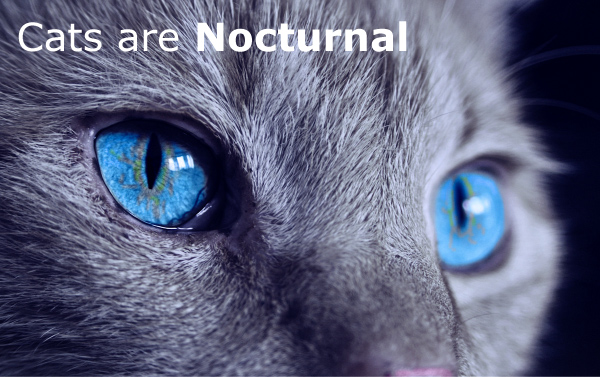Are cats nocturnal? Can cats see in the dark?
Housecats are often seen sleeping during the day and prowling at night with mysterious glowing eyes. This has led many to believe that cats are nocturnal creatures (active mostly at night), when in fact they are crepuscular.
Wild cats such as tigers, lions and even feral cats are generally nocturnal. But domesticated cats are instinctively crepuscular, meaning active during dawn and dusk. These are the times when hunting would be most advantageous – prey is available and there is still enough light to see.
This brings us to another myth about cats, that they can see in the dark. Human eyes have an abundance of “cone” receptors (responsible for day vision and color perception) while cats have an abundance of “rod” receptors (responsible for night and peripheral vision). Cats cannot perceive colors as richly as humans and are also severely nearsighted but can see in one-sixth the light of their human counterparts. Adding to this ability, cat’s pupils can dilate much greater than ours and a structure in the back of their eye called the tapetum lucidum reflects light back to the photoreceptors, further enhancing vision (and creating the glowing eye effect). Cats obviously have superior ability to see in low light, but are as blind as we are in total darkness.
Cats’ dusk-and-dawn behavior may be a result of their desert-cat ancestors: their prey is more likely to be out and about when the temperature is lower. Housecats have adapted somewhat to their domesticated existence but maintain their primitive instincts – explaining why your cat tends to wake you up in the morning before you alarm clock has gone off!




